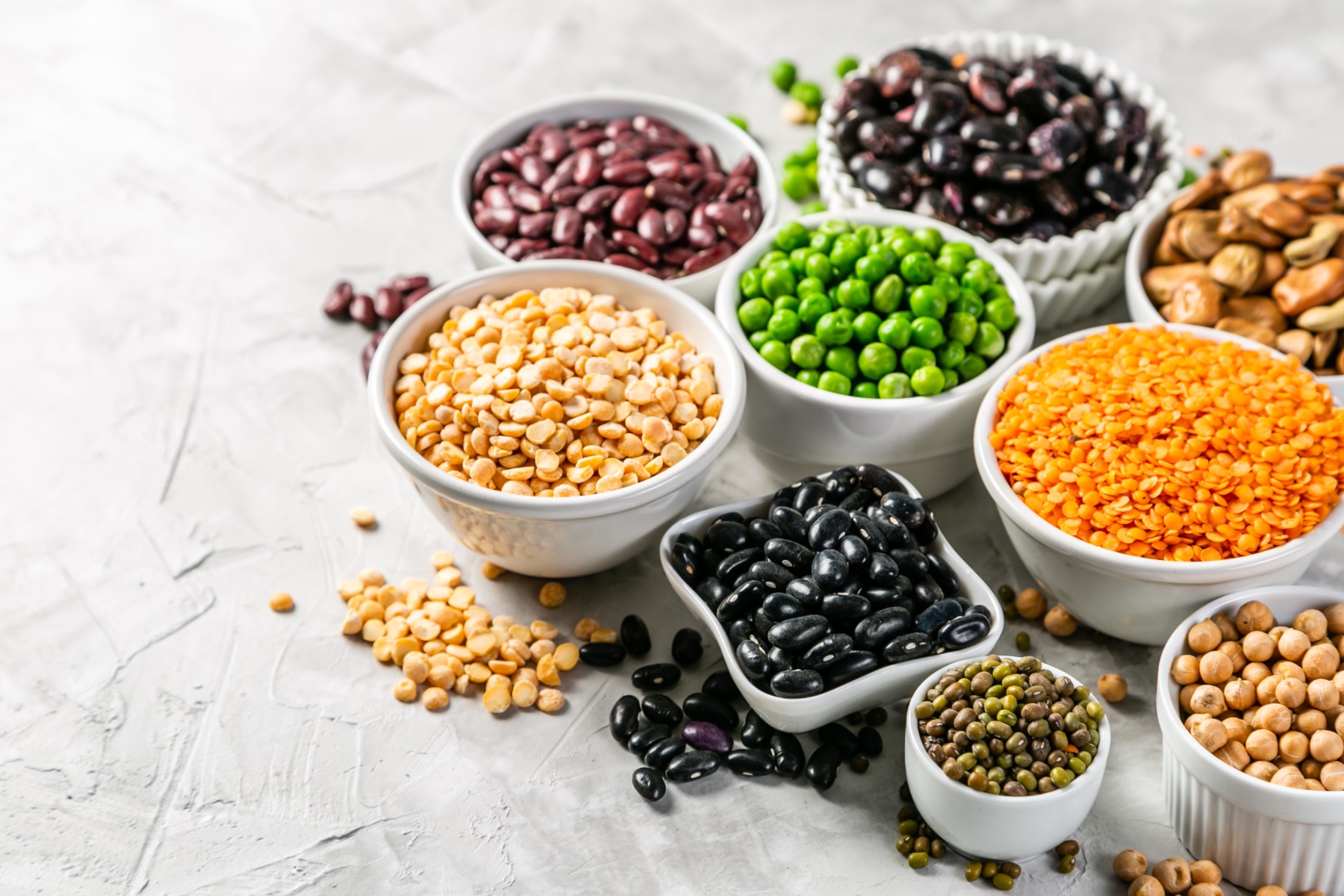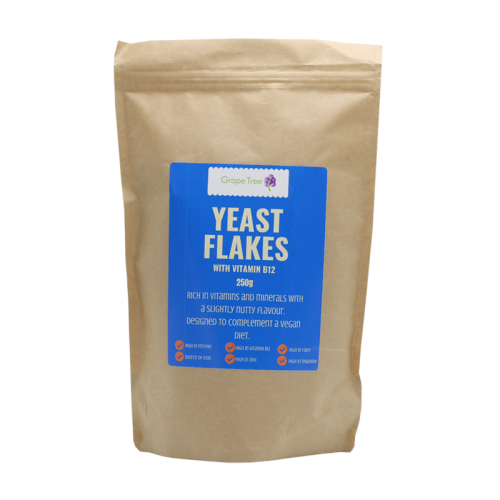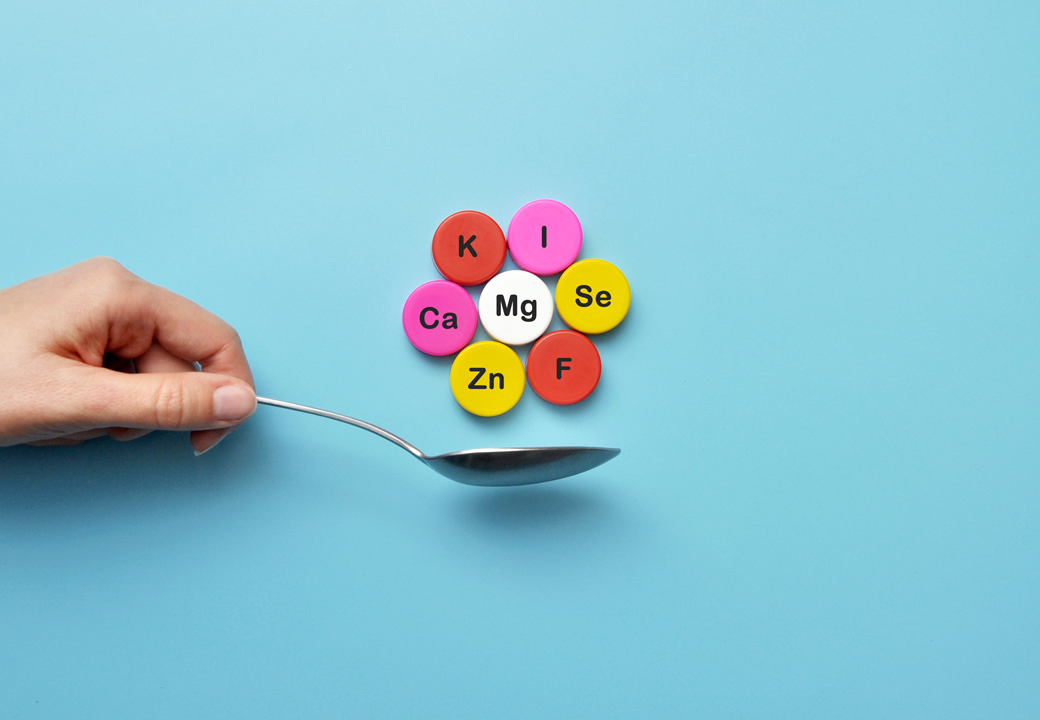
Photo Credit: "© [anaumenko] / Adobe Stock
The Nutrients We Need to be Sure of
There are some things we just must eat. These essential nutrients are necessary for life and health, but our bodies cannot make them.
In addition to water the list includes nine amino acids, two fatty acids, thirteen vitamins and fifteen minerals.
For those eating a healthy, balanced diet most of the essentials are delivered by the range of foods they eat. But some are found largely in meat, fish or dairy products.
So, as an increasing number of us switch to a more plant-based diet the essentials become more difficult to be sure of. If all or even some animal-based foods are cut, then it is important to be clear where else these essentials are to be found. For vegans some may require supplements.
There is one essential that we all face difficulty with. Our chief source of Vitamin D is the effect of sunlight on the skin. In the spring and summer most of us going outdoors can get enough. For the rest of the year even those who eat meat, oily fish and egg yolks (the best food sources) can struggle to achieve an adequate intake.
The Department of Health recommends that in the autumn and winter months everyone should consider taking a 10mcg a day supplement. For those who do not often go out or have a dark skin or wear clothes that cover most of their skin the recommendation is to consider a supplement all year.
Here is our guide to the other nine essentials we need to be sure of and the plant foods that contain them.
Calcium
Over 1 per cent of an adult’s bodyweight is calcium. It is vital for building bones and teeth and helps muscle movements (and that includes the heartbeat). A deficiency can lead to rickets in children and to osteoporosis in later adult life.
How Much? Adults need 700mg a day.
Most green vegetables (but not spinach) and fortified foods are key sources. A handful of almonds (around 30g) has 88mg. A similar quantity of apricots and figs both have 18mg, raisins have 17mg and prunes 14 mg. All are sources recommended by the NHS.
Protein
Every cell in our bodies is dependent on proteins for growth and repair. Proteins are made from combinations of 20 amino acids nine of which are essential. So, eating a range of sources is vital.
How Much? Adult males need 55g a day and females 45g based on 0.75g for every kilo of bodyweight.
Earlier this year we listed the protein percentages of leading plant sources. They were peanuts (25%), pumpkin seeds (24%), lentils (24%), almonds (21%), chickpeas (20%), sunflower seeds (19%), cashews (17%), quinoa (13%), oats (16%) and buckwheat (13%). Linseed, pistachios and hemp seeds are also recommended.
Zinc
The creation of new cells in the body and the processing of the carbohydrate, fat and protein we eat all rely on zinc. It is also important in wound healing.
How Much? Men need 9.5mg a day and women 7mg.
In addition to tofu top plant-based sources are nuts, seeds and pulses. Based on 30g servings (around a handful) hemp seeds have 3mg, pumpkin seeds 2mg, cashew nuts 1.8mg, chia seeds 1.4mg, linseed 1.3mg, quinoa 1mg, walnuts 0.8mg.
Selenium
Selenium plays a key role in the immune system and is necessary to keep the thyroid gland functioning properly.
How Much? Men require 75mcg (micrograms) a day and females 60mcg.
Brazil nuts are the outstanding source of selenium. Two medium sized nuts will provide that daily requirement. A tablespoon of sunflower seeds has 9mcg, sesame seeds 6mcg and linseed 1.5mcg.
Omega 3 Fats
The Omega 3 fats are vital for the functioning of the brain and the control of heart disease and stroke.
Their importance to heart health has triggered advice to eat at least two portions of fish a week because oily fish contains the Omega 3 fatty acids EPA (eicosapentaenoic acid) and DHA (docosahexaenoic acid).
The third major Omega 3 is alpha-linoleic acid (ALA) and this is the one the body cannot make.
For those who do not eat fish getting enough ALA is critical because it can help create EPA and DHA.
Linseed and walnuts are rated as excellent sources of Omega 3s. Chia seeds, linseed and hemp seeds are also recommended. No guidelines on ALA consumption exist in the UK.
Vitamin B12
Vitamin B12 is needed in smaller amounts than any other vitamin but it is not produced by plants. It helps make red blood cells, maintain the nervous system and release energy from food.
How much? Both men and women required 1.5mcg a day.
Those who do not eat meat or dairy need to look to supplements or fortified foods. The Vegan Society also recommends fortified yeast extracts and nutritional yeast flakes (pictured).
Iron
Iron is vital for making red blood cells. It also helps create energy from food. An iron deficiency can cause a lack of energy, and an increased susceptibility to infection.
How Much? Older women and men need 8.7mg. Women under 50 require 14.8mg a day.
Dark green leafy vegetables are good sources, but the NHS also recommends beans, nuts, dried fruit and wholegrains. Outstanding sources are (per 100gs) Sesame seeds 10.4 mg, lentils 6.5mg, sunflower seeds 5.25 mg, figs 2.0mg, apricots 2.66mg, almonds 3.72mg, hazelnuts 4.7mg, brazil nuts 2.43mg and dates 1.3mg.
Vitamin A
Vitamin A is important for the operation of the immune system, protecting against infection, for skin health and vision.
How Much? Men need 0.7mg a day and women 0.6mg.
Getting vitamin A from plants involves targeting those which contain beta-carotene which is then converted into the vitamin in the body. Fruits and vegetables with bright coloured skin like carrots, tomatoes, and mangos all have it. One of the Vegan Society’s tips for boosting the daily in-take is three dried apricots.
Iodine
Iodine helps make the thyroid hormones which control cells and chemical reactions in the body.
How Much? Adults need 140 micrograms a day.
Foods from the sea including fish, seaweed and salt are the acknowledged sources of iodine along with dairy products and eggs. Cereals and grains also have it. A quarter cup of oats (around 35g) has 6mcg and the same amount of peanuts has 7mcg. For vegans a supplement may be the most reliable way of meeting the iodine requirement.
Yeast Flakes Are the B12 Super Boosters
For many on a plant-based diet yeast flakes are a familiar part of the eating week.
The Vegan Society’s suggested meal plan includes one dish every day with 5g of them.
They can be used on pasta, added to soups and stews, become part of the breakfast granola or mixed into juices, milks and smoothies.
Our new own brand Yeast Flakes fortified with the essential vitamin B12 are now in store.
A 5g serving will deliver 2.2mcg of B12 more than your requirement for the day. It also has the other seven B vitamins as well as 2.45g of protein and 1.25g of fibre.
Plus, it contains the minerals calcium, zinc, iron, selenium, potassium, phosphorous, magnesium and copper.

